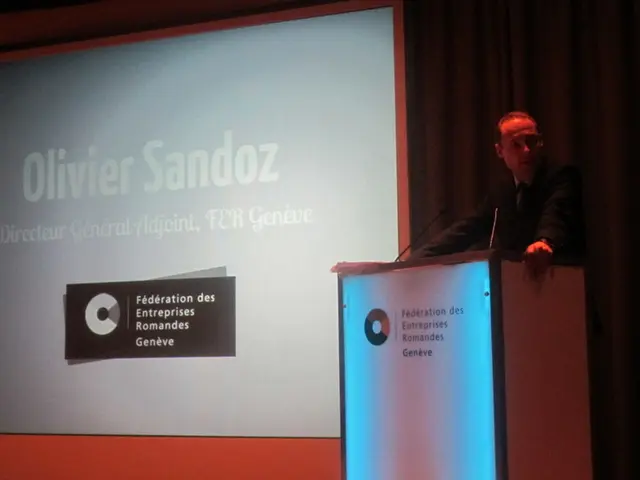Fintech and Government: A Growing Trend Towards Mutual Comfort?
In the heart of Dublin, Ireland, the Global Government Fintech Lab 2025's opening panel session took place on June 11, 2025. The session, moderated by former senior UK civil servant Siobhan Benita, brought together representatives from Italy, Germany, Switzerland, Ireland, and the private sector to discuss the evolving relationship between governments and fintech.
Elda Nogarotto, policy officer in the Directorate for the Regulation and Supervision of the Financial Sector in Italy's Department of Treasury, began the discussion by highlighting the ongoing experiments with AI in Italy's public administration. She described a "pilot" initiative, overseen by her ministry in collaboration with Banca d'Italia, insurance regulator IVASS, and securities regulator CONSOB, that is scheduled to run until August 2026.
Brian Montgomery, senior director at Workday, emphasized the importance of marrying technology with human analysis in the finance sector. He also underscored the quality of data underlying AI's use as crucial. Montgomery also mentioned organizing a seminar on the 'future of finance', aimed at attendees from other public sector authorities, that will explore fields such as AI and quantum computing.
In Germany, current government engagement with cryptocurrencies in official activities involves initiatives linked to digitalization efforts, such as the pilot use of NFTs for secure, digital representation of physical ownership documents like vehicle registration via the "i-Kfz-App," facilitated by regulated third-party digital wallet providers. Laura Körber from Germany's Federal Ministry of Finance discussed funding-increasing and bureaucracy-reducing initiatives at German and EU level, including the German Future Fund, the WIN Initiative, the European Tech Champions Initiative, the Capital Markets Union initiative, the Competitiveness compass initiative, the Omnibus Package, the Markets in Crypto-Assets Regulation (MiCAR), the proposed Financial Data Access (FiDA) regulation, and the EU AI act.
Switzerland for UNHCR and the Switzerland-based Cardano Foundation recently announced a co-operation on an exchange-traded product (ETP) that funds refugee support through crypto staking. Eva Selamlar-Leuthold, head of the Swiss Financial Innovation Desk, discussed the Swiss Financial Innovation Desk's aim to promote financial innovation and consolidate Switzerland’s position as one of the world's leading financial centers.
Brian Corr, head of the international financial services unit in Ireland's Department of Finance, discussed the 'Ireland for Finance' initiative, a whole-of-government strategy that includes fintech and digital finance as one of its five themes. He also emphasized the importance of 'fintech' not appearing by name in Irish legislation or regulation, as its absence negatively affects the "policy levers" that can be pulled.
The panel also touched upon specific examples of public sector fintech priorities and exploration. Elda Nogarotto discussed the FinTech Factory MEF, an Italian government initiative aimed at supporting start-ups, spin-offs, and SMEs in developing new solutions and technologies with potential applications in the public sector.
The Swiss National Bank is working in the sphere of tokenised finance and wholesale central bank digital currency. Germany's Federal Ministry of Finance is using AI and has co-developed a modular generative AI platform with several applications.
Laura Körber from Germany's Federal Ministry of Finance mentioned the ministry's 'Digital Finance Forum' (formerly named the 'Fintech Council') that involves private sector individuals and meets in roundtable format. The 'Central Bank of Ireland's innovation sandbox programme' was mentioned as an example of a public sector-led initiative progressing at pace.
The session concluded with a discussion on whether governments and fintech make comfortable bedfellows. Körber emphasized the need for governments to foster an environment that encourages fintech-related innovation while maintaining regulatory oversight. Montgomery reiterated that technology, such as AI, can help organizations perform better but does not determine the right actions.
In summary, the Global Government Fintech Lab 2025's opening panel session highlighted ongoing efforts by various governments to engage with and encourage fintech innovation, while maintaining regulatory oversight. The discussion underscored the importance of a collaborative approach between governments and the private sector in shaping the future of finance.








